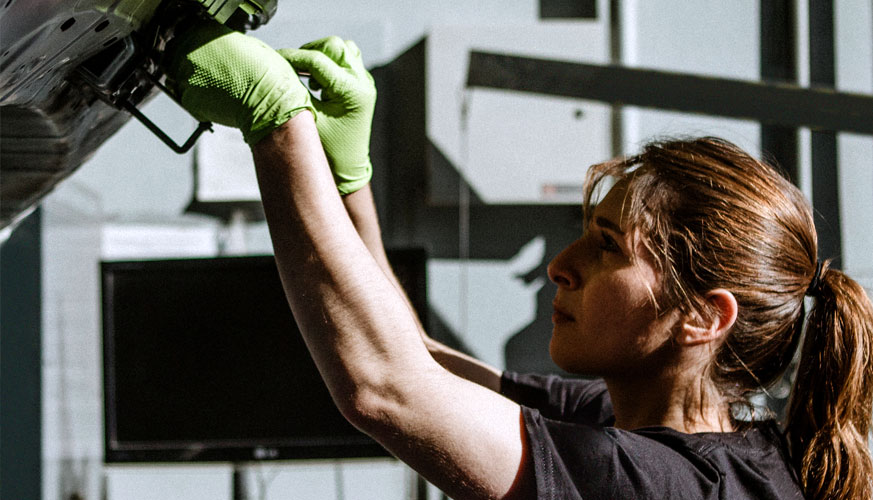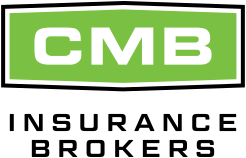Equipment Breakdown Insurance
Get protection against breakdown of equipment by covering the cost to replace or repair the damaged equipment, as well as other expenses incurred due to the damaged equipment.
Equipment breakdown coverage is a form of property insurance designed to protect a company’s mechanical, electrical and computer equipment from unexpected breakdowns. These policies are flexible, and help organizations recoup financial losses related to property damage, business interruption and spoilage.
Because your business depends on functioning equipment to operate and maintain revenue, a breakdown could be devastating. The threat of breakdown is increasingly prevalent because technologically advanced equipment tends to be sensitive and fragile, and can easily suffer damage that causes breakdowns. And the losses sustained continue to increase with the rise of just-in-time manufacturing, Internet marketing and improved supply chain management.
Problems with your equipment can be extremely risky if you are not properly insured, as standard Property Insurance will not cover these types of losses. Equipment Breakdown Insurance (also referred to as Boiler and Machinery Insurance) will cover you in the event of damage or a breakdown.

What does Equipment Breakdown Insurance cover?
It is important to understand the coverage you receive with your equipment breakdown policy. If you hold an older policy, you may want to review it to be sure it covers any new, high-tech equipment you may have purchased.
Typically, the following is covered under an Equipment Breakdown policy:
- Property Damage – Cost to repair or replace damaged equipment due to an accident.
- Off-Premises Property Damage – Covers portable equipment damaged away from the covered location.
- Business Income – Covers the loss of income as a result of a covered accident until equipment is repaired or replaced. Also allows for additional time after repair or replacement to ensure that the business is operating at full capacity.
- Contingent Business Income – Covers income loss after an equipment breakdown at an essential customer or supplier location.
- Extra Expense – Covers additional expenses used to keep the business going after a covered loss, such as equipment rental fees.
- Service Interruption – Covers business income and extra expenses after a breakdown at a supplier with whom the insured has a contract. If no contract exists, the equipment must be located within one kilometre of the insured’s location. Services such as waste disposal, air conditioning, refrigeration, heating, natural gas, compressed air, water, steam, electrical power and communications are often included. Considering the reliance many businesses have on Internet access, it is important to note that this may also cover your loss of business due to a mechanical or electrical breakdown in your ISP’s servers or other equipment. It will not, however, cover non-physical damage such as that caused by computer viruses.
- Perishable Goods – Covers food spoilage, manufactured goods or other perishable items after a covered incident.
- Demolition
- Ordinance or Law – Covers costs associated with complying with building codes and laws (other than demolition).
- Expediting Expense – Covers the temporary or permanent repairs necessary for basic business activity.
- Hazardous Substances – Pays to clean, repair or replace areas that are contaminated by hazardous substances released in a covered loss.
- Data Restoration – Pays for the restoration of lost or damaged data.
- Newly Acquired Locations – Pays for damage to newly acquired locations.
- Errors and Omissions – Covers locations that are outlined in the policy.
- Brands and Labels – Reimburses for the loss when having to sell a damaged product for less than retail price.
- Waive of In-Use Restriction – Pays for damaged equipment that was not in operation at the time of a covered accident.
- Computer Equipment and CFC Coverage
Claims Scenario: Give Me a Break
The company: A metal cutting company.
The challenge: Recently, a power surge caused by a major storm destroyed two circuit boards at a metal cutting shop. This unexpected outage left the business without the necessary machinery to continue operations. Furthermore, in order to meet production deadlines, shop workers had to travel to the company’s sister location. Between the lost time, travel expenses and repair costs, the organization experienced $52,000 in losses—all from just one storm.
Equipment breakdown insurance in action: Equipment outages and breakdowns are not generally covered under standard commercial insurance policies. Instead, organizations should acquire comprehensive equipment breakdown insurance to cover the cost to repair or replace damaged equipment.
In addition, equipment breakdown insurance reimburses companies for lost time, which can prove invaluable following a sudden outage.
Claims Scenario: Spoiler Alert
The company: A small, family-owned restaurant.
The challenge: A restaurant recently experienced major losses after several of their refrigerators stopped working. The restaurant depends on these appliances to deliver fresh food to their clients.
After several attempts to fix the system, the restaurant had to close for the day and call for repair services. Not only did the restaurant have to pay over $1,000 in maintenance costs, they also lost about $18,000 worth of food products due to spoilage—a major hit for a small business.
Equipment breakdown insurance in action: Just one equipment failure can lead to multiple losses, including lost revenue from business interruptions and lost product from spoilage. Thankfully, equipment breakdown insurance can protect against these risks.
In fact, equipment breakdown insurance is one of the few ways restaurants and other food-related businesses can recoup losses from spoiled inventory. An outage of any kind could easily result in the inability to prepare, cook, serve and sell food. As such, organizations need to secure the right policy to ensure their business is protected before, during and after an equipment breakdown.
What Are the Most Common Equipment Breakdowns?
Electrical Systems
- Electrical Systems include transformers, electrical panels and power cables.
- Electrical systems make up 10 to 15 per cent of a building’s worth, and because they predicate all other business functions, a failure holds the potential for substantial loss for both building owners and their tenants.
- A short circuit in a transformer, panel or cable can spread and destroy a large part of the system. These parts are often overlooked and underserviced.
- Costs such as generator rental fees, relocation of tenants and the cost of leasing property in another location until equipment is repaired can worsen the financial impact of a breakdown.
- For example, a 2008 incident of electrical arcing destroyed three main electrical panels and left an office building without power. Temporary measures were taken to restore power to tenants, contributing to a total loss of $1,507,389.
Air Conditioning and Refrigeration
- Since many air conditioning units are located on the roof, repair or removal in some cases will require the hire of a helicopter or crane.
- Without A/C, many businesses will need to relocate or rent temporary equipment while the unit is out of order.
- Businesses that rely on refrigeration to maintain their products (hotels, restaurants, schools, nursing homes, hospitals, etc.) run the risk of spoilage in the event of a breakdown. They may be forced to hire a catering company or rent a refrigeration truck.
- In one case, a hotel air conditioning compressor motor broke down during a July convention, causing $73,366 in total losses.
Boilers and Pressure Equipment
- These include heating systems, hot water units, cookers, steriliser ovens, sterilizers and cleaning equipment.
- Cracking, collapsing, bulging or explosion can occur in boilers and pressure vessels.
- With no heat or hot water at a facility, businesses are forced to rent costly temporary units until the facility can be repaired.
- For example, one store lost heat during the holiday shopping season when the boiler broke down and incurred $54,467 in losses.
Computers and Communication Equipment
- Outages can affect computers, multi-line phone systems, TV satellite systems, point-of-sale systems, security systems and fire alarm systems.
- An outage at your Internet Service Provider (ISP) can affect the functionality of your website and prevent your access to crucial information or Web services.
- For example, a power surge damaged a service station/convenience store’s electronic cash register, auto diagnostic system, phone and paging equipment and security system for a total loss of $56,888.
Mechanical Systems
- Can break down as a result of vibration, metal fatigue, seizing, misalignment or human error. This includes machines such as water pumps, ventilation fans, elevator and escalating machines, motors or engines.
- Equipment is often critical to most buildings’ functions.
- An example of this type of breakdown would be when a hydraulic lift in an auto repair shop needs to be replaced after welds gave way, costing around $9,000.
Problems with your equipment can be extremely risky if you are not properly insured. What’s more, standard property insurance policies do not guarantee cover for these types of losses. In these instances, equipment breakdown insurance is invaluable, protecting you in the face of unforeseen damage or breakdowns.
Contact CMB Insurance Brokers today to learn about the Equipment Breakdown Insurance coverage solution that’s right for you.
What types of Business Insurance do I need?
There are many types of insurance policies that our experts can advise you on and package to meet your specific needs, such as:
- Commercial General Liability
- Commercial Property Insurance
- Business Interruption Insurance
- Pollution Liability Insurance
- Professional Liability Insurance
- Product Liability Insurance
- Equipment Breakdown Insurance
- Commercial Auto Insurance
- Cyber Insurance

